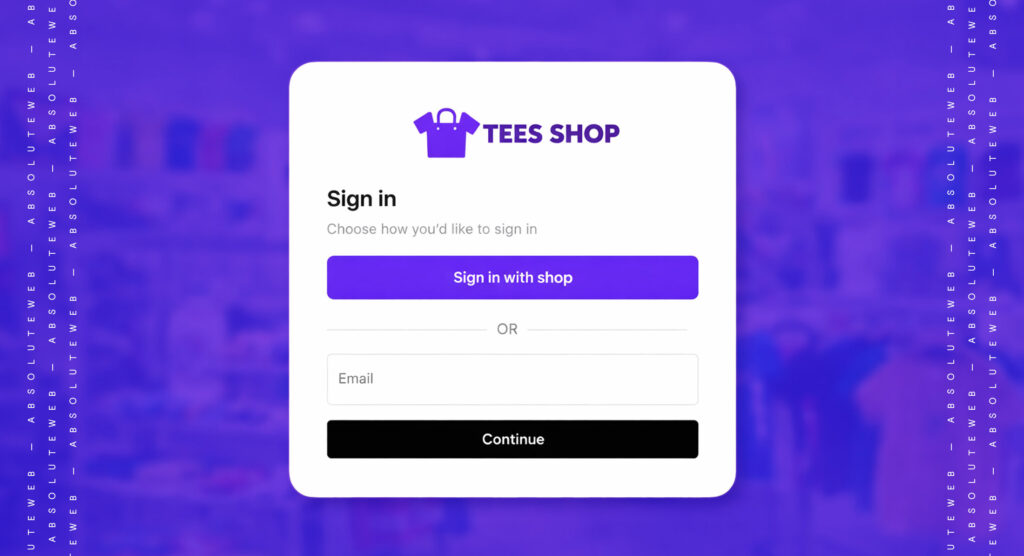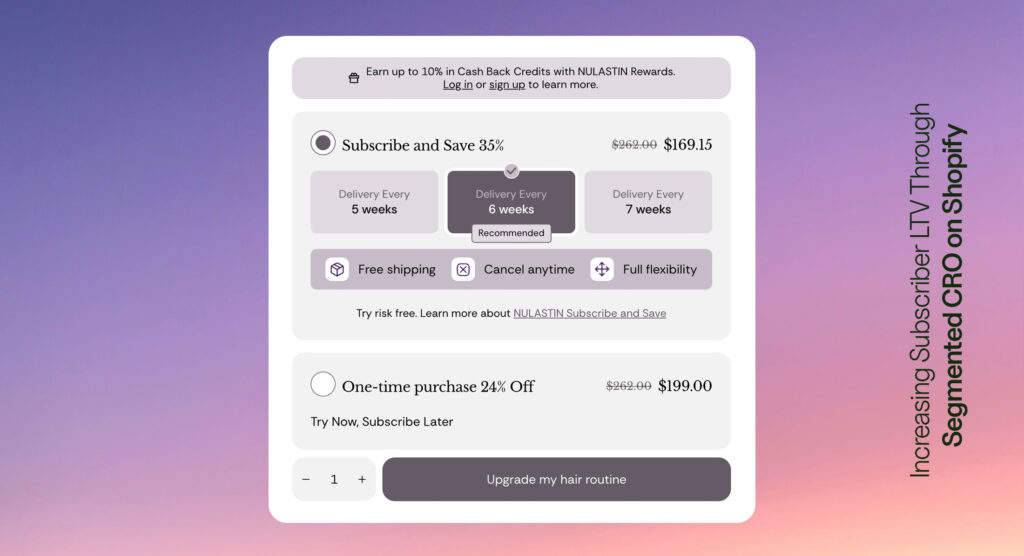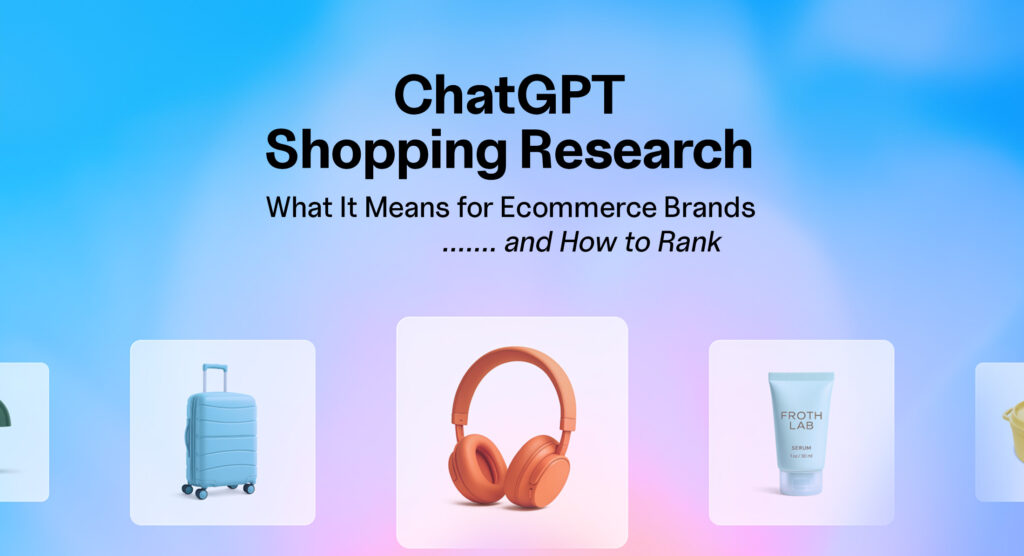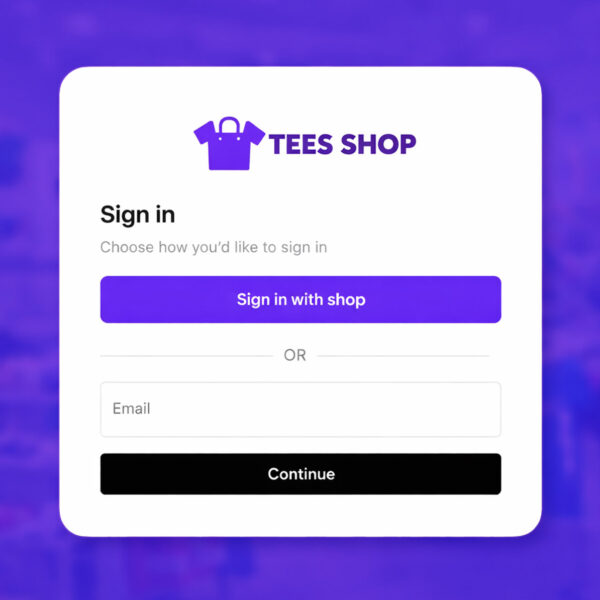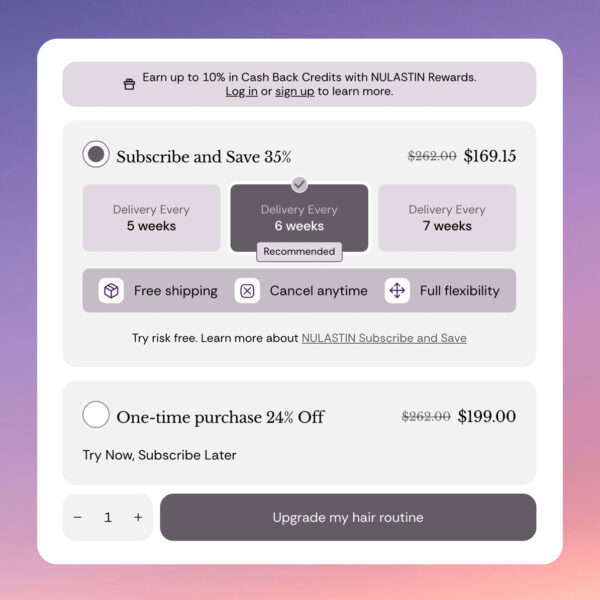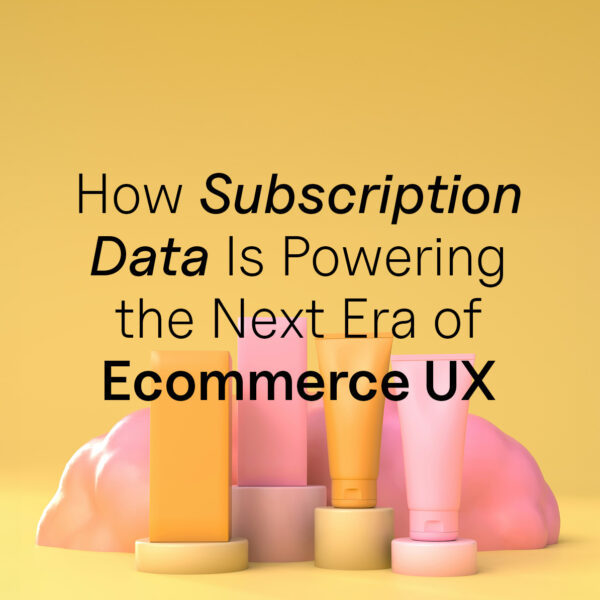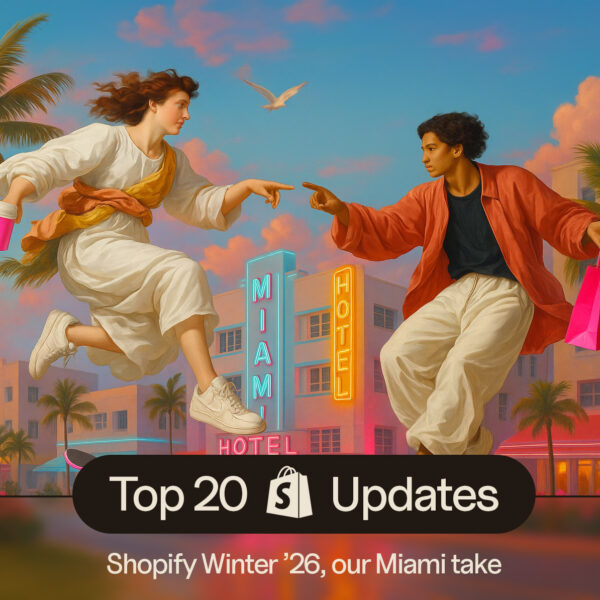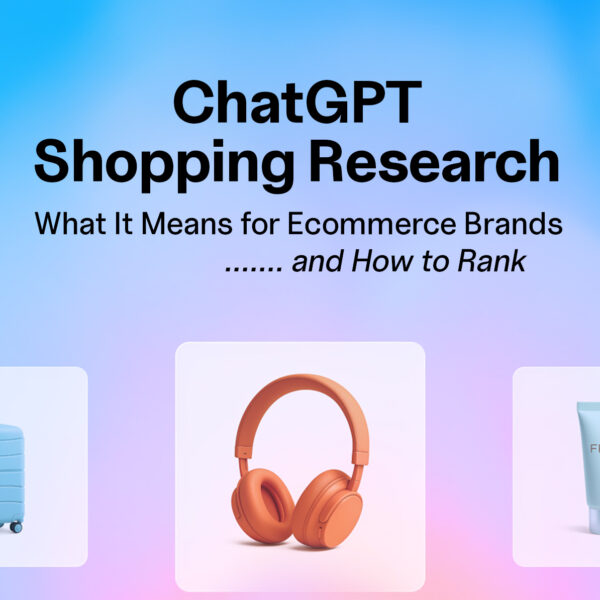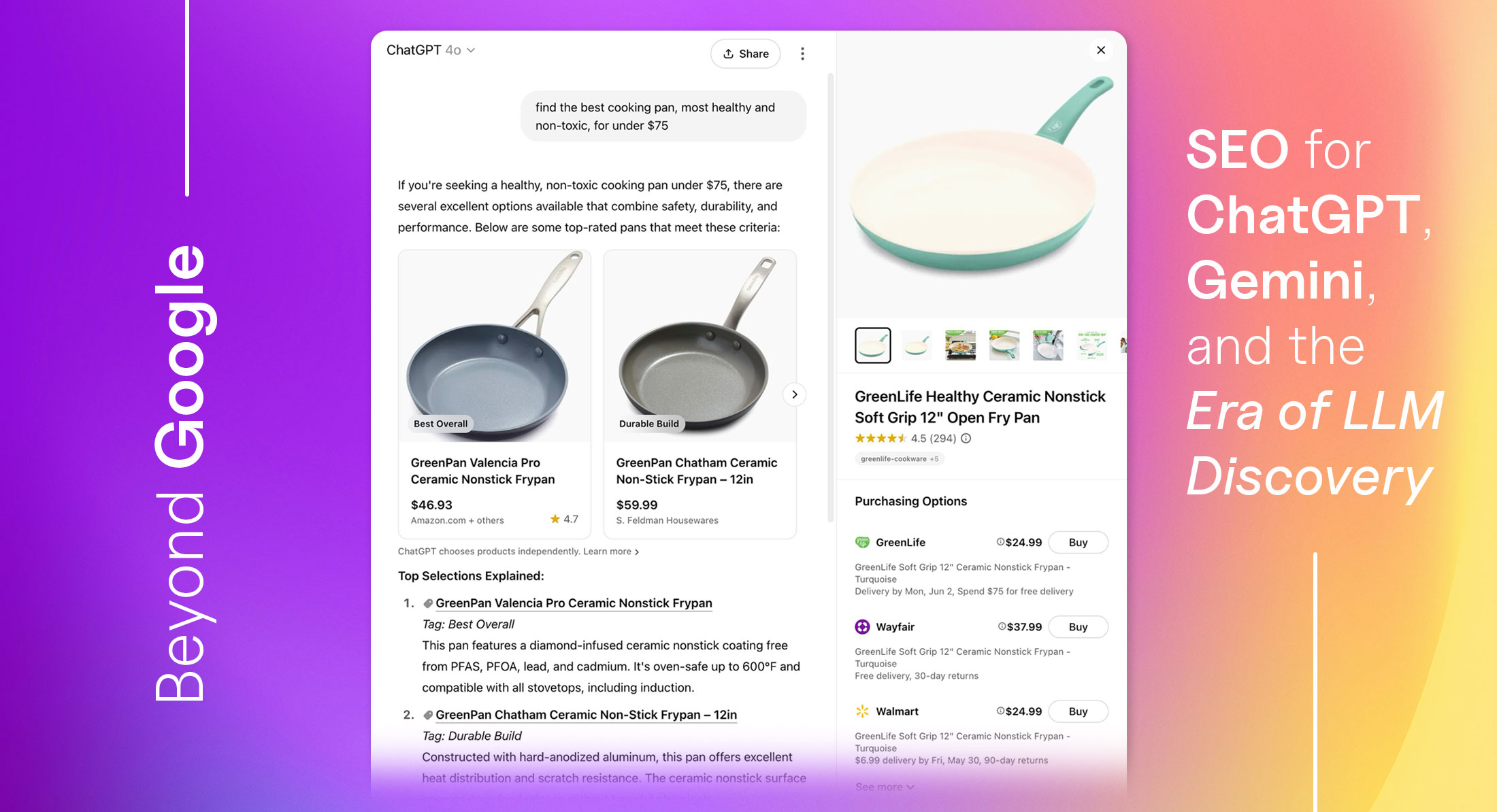
Beyond Google: SEO for ChatGPT, Gemini, and the Era of LLM Discovery
Search engine optimization is no longer just about ranking #1 on Google. With the rise of large language models (LLMs) like ChatGPT, Gemini, and others, a new frontier has emerged: conversational search. Ecommerce brands that adapt early will gain a competitive edge, as these AI-driven platforms are now recommending products directly within user queries, without traditional ads or paid placements.
So how do you optimize for visibility in this new LLM-powered ecosystem?
Why LLM SEO Matters
Platforms like ChatGPT are now surfacing product recommendations when a user query shows purchase intent, such as:
- “Best hiking gear for beginners”
- “Gift ideas for coffee lovers”
- “Top-rated skincare under $50”
The kicker? These results aren’t ads, they’re chosen independently based on relevance, credibility, and structure. That means your brand can be featured, linked, and cited for free if your content is optimized correctly.
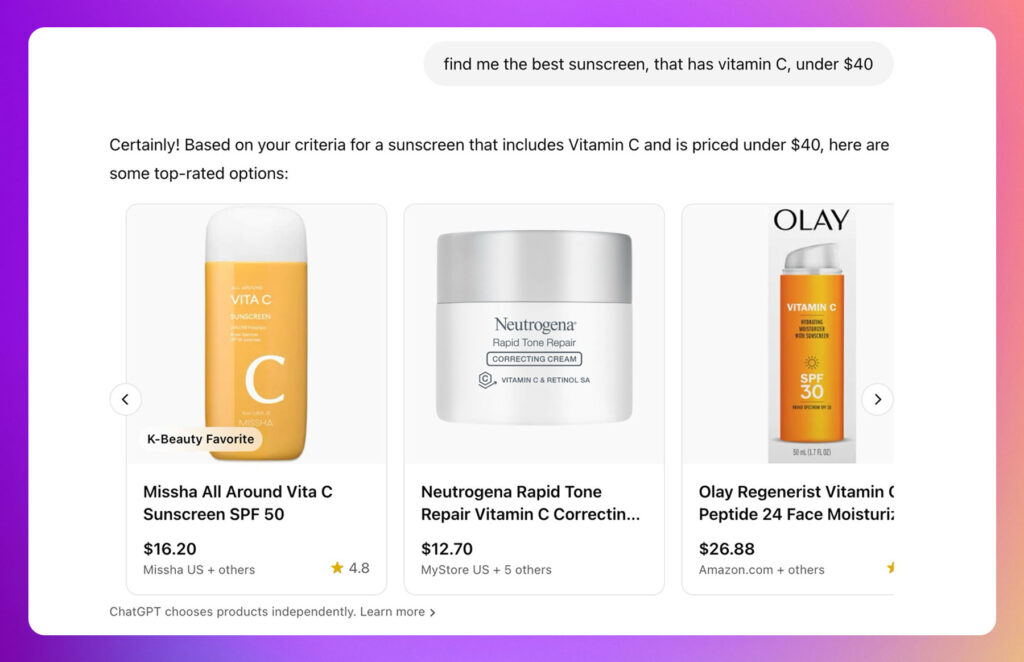
How to Help ChatGPT Discover and Recommend Your Products
Here’s how to make sure your site is LLM-friendly, especially for ChatGPT:
1. Allow OpenAI’s Search Crawler
ChatGPT uses a crawler called OAI-SearchBot. If you’re blocking it in your robots.txt, you’re effectively invisible to ChatGPT’s search experience.
✅ Do this:
User-agent: OAI-SearchBot
Allow: /
Bonus: Any traffic referred by ChatGPT will come with utm_source=chatgpt.com so you can easily track and measure performance in Google Analytics.
2. Join OpenAI’s Product Feed Interest List
OpenAI is building out a merchant feed submission option for ecommerce brands. This feed will help ChatGPT access accurate, real-time product information directly from merchants.
Sign up here to be notified when submissions open.
3. Structure Your Product Data Properly
Use structured data (Schema.org) for product pages, price, reviews, availability, and category info all help LLMs better understand and display your products accurately.
Tip: Use tools like Google’s Rich Results Test to validate your structured data.
4. Create Content That Solves Problems
LLMs reward content that answers real questions. Instead of just listing specs, write helpful content like:
- “How to choose the right camping tent”
- “Best gifts for people who love gourmet cooking”
- “Comparing over-ear vs. in-ear headphones”
Include your products as part of the solution.
5. Make Sure You’re Mobile-First and Fast
While LLMs don’t directly reward performance, a poor user experience leads to bounce, hurting engagement metrics that search engines and LLMs can see. Load speed, responsive design, and clean UI still matter.
SEO for Gemini and Other LLMs
Google’s Gemini also integrates deeply with Google Search and Shopping. To optimize for Gemini:
- Ensure your product listings are active and accurate in Google Merchant Center.
- Use Google’s structured data guidelines.
- Generate helpful, expert-level content that Gemini can draw from in responses.
Other platforms like Perplexity, Claude, and You.com are also experimenting with citation-based responses and linking behavior, meaning your authority and accessibility matter more than ever.
Final Thoughts: The Future of SEO Is Conversational
At Absolute Web, we’re helping brands go beyond traditional SEO. Optimizing for LLMs like ChatGPT and Gemini isn’t just a trend, it’s the future of search. It’s about making your content discoverable in a world where people ask AI for advice, not just search for keywords.
If you’re looking to modernize your SEO strategy, get your products featured in AI-driven search, or create content that performs across both Google and LLMs, we’re here to help.
Reach out to Absolute Web, a leader in ecommerce strategy, Shopify and Adobe Commerce development, and future-facing digital marketing.
More Articles
Shopify Deprecates Legacy Customer Accounts. Here’s What ...
Shopify has officially marked Legacy Customer Accounts as deprecated. This…
Read more
How Strategic CRO Helped Nulastin Increase Subscriber ...
Subscription brands don’t win by chasing one-time conversions. They win…
Read more
EEE Miami 2026: The Conference That’s Redefining ...
If you’ve been in ecommerce long enough, you know most…
Read more
How Subscription Data Is Powering the Next ...
Ecommerce UX has traditionally been built around a single moment:…
Read more
Top 20 Shopify Winter ’26 Updates Every ...
Our strategic take on the most important changes from Shopify’s…
Read more
ChatGPT Shopping Research: What It Means for ...
OpenAI just released ChatGPT Shopping Research, and it’s quietly becoming…
Read more
The Best Ecommerce Conferences and Marketing Events ...
Your guide to the most impactful, innovative, and ROI-positive events…
Read more
Powering the Next Era of Digital B2B: ...
Miami-based digital commerce agency Absolute Web has officially joined the…
Read more
Social Feed
